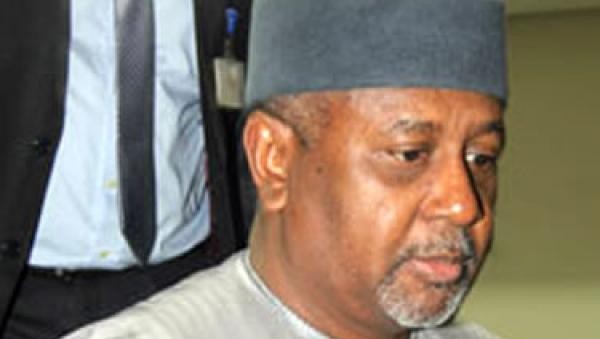A Federal Capital Territory High Court has set up a three-man panel to resolve the logjam arising from the trial of Colonel Sambo Dasuki in the alleged money laundering charges along with Aminu Baba Kusa, Acacia Holdings Limited and Reliance Referral Hospital.
The three-man panel headed by Justice Hussein Baba-Yusuf is to proffer a way forward for the court in the dilemma being encountered by the court in the trial.
Dasuki, who had been in the detention of the Department of State Services since December 2015 despite about six court orders that granted him bails, had written to the Federal High Court that he would no longer appear for trial in protest against violation of court orders by the Federal Government, which put him on trial.
In the letter sent to the Federal High Court through his legal team, Dasuki made it abundantly clear that the Federal Government has lost both moral and legal right to continue to prosecute him having deliberately violated subsisting and valid court orders.
In the strongly worded letter, the former NSA claimed that that Federal Government has proved beyond reasonable doubt it has no respect for the rule of law.
At the resumed trial on Friday at FCT High Court, counsel to Federal Government, Oluwaleke Atolagbe, informed Justice Baba-Yusuf that the matter was for the continuation of trial and that he was ready to proceed.
He, however, said a fresh motion on notice just filed by the defendant had been served on him and that he needed time to study the direction of the motion and then respond appropriately.
Atolagbe subsequently pleaded with the judge to grant him a short adjournment.
Counsel to Dasuki, Victor Okwudili, had admitted that a motion was served on the prosecution and that the motion ought to be decided one way or the other before the trial could continue.
Okwudili, however, did not object to the request for an adjournment by the prosecution.
A Senior Advocate of Nigeria, Solomon Umoh, a counsel to the second defendant, Aminu Baba-Kusa, had faulted the claim of the Federal Government that the former National Security Adviser deliberately refused to appear in Court for trial.
The Senior lawyer argued that the blame for Dasuki’s absence in court should appropriately be shifted to the Federal Government for using one hand in holding Dasuki in its custody illegally, and at the same time using the second hand beckoning on the same Dasuki to appear in court.
Umoh, therefore, agreed that the issue surrounding Dasuki’s decision not to be in court should first be resolved before the trial could proceed.
Justice BabapYusuf in his ruling agreed that the issue must be resolved in the interest of justice to both parties and therefore put in place a three-man panel that would proffer solution for the way forward for the court.
Apart from Justice Baba-Yusuf, others in the panel are Justice Valentine Ashi and Justice Mary-Ann Anenih both of FCT High Court.
Justice Baba Yusuf, therefore, adjourned the matter till February 19, 2019 after the presidential election.
During his tenure as the National Security Adviser in the immediate past administration of Goodluck Jonathan, Dasuki had reinvigorated and facilitated the expansion of troops of Multi-national Joint Taskforce with neighbouring Benin, Cameroon, Chad and Niger towards combating the dreaded Boko Haram insurgency.
Dasuki also facilitated collaboration with foreign technical advisers towards ensuring the recovery of several major towns in Adamawa, Borno and Yobe states from Boko Haram terrorists.
Some of the liberated towns, during his tenure included: Abadam, Askira, Baga, Bama, Bara, Buni Yadi, Damboa, Dikwa, Gamboru-Ngala, Goniri, Gujba, Gulag, Gulani, Gwoza, Hong, Kala Balge, Konduga, Kukawa, Marte, Madagali, Michika, Monguno, Mubi, Vimtim among others.
However shortly after leaving office, the Federal Government filed charges against him in different courts and was granted bail in line with the provision s of the law but has remained in an illegal detention since December 2015 prompting him in writing Federal High Court in Abuja where he is being prosecuted for charges of illegal possession of firearms and money laundering, requesting that he be allowed to stop submitting himself for trial.
He based his request on the Federal Government’s continued refusal to comply with a series of court orders granting him bail.
He cited six court orders, including one by the Court of Justice of the Economic Community of West African States, which had ordered his release but were ignored by the Federal Government.


